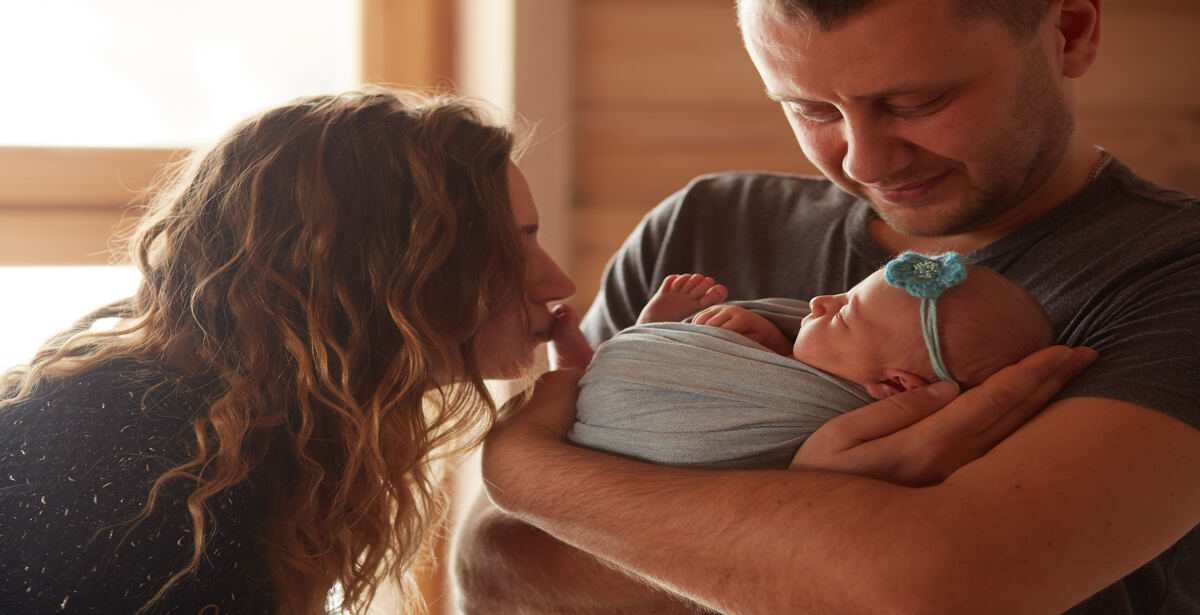Parenthood is one of life’s greatest blessings, but it can also be an emotional rollercoaster. Between sleepless nights, constant feedings, and adapting to your new reality, staying sane can feel like an impossible task. The good news is, with the right strategies and mindset, you can navigate these challenges while enjoying the beautiful moments with your baby. Here are the best tips for new parents to stay sane, manage stress, and thrive during this life-changing time.
Tips On How To Keep Sane With A Newborn
These tips for new parents will help to stay sane, grounded, and confident in your parenting journey.
1. Accept Help from Family and Friends
Parenthood is not a solo journey, and accepting help from those around you can make all the difference. Let family or friends bring meals, clean the house, or watch the baby so you can rest or take a shower. Don’t hesitate to ask for specific assistance, such as picking up groceries or holding the baby while you nap. Accepting help doesn’t make you less capable; it shows your wisdom in leveraging your support system. Letting others pitch in creates space for you to focus on bonding with your little one and maintaining your own sanity.
2. Trust Your Instincts
When you become a parent, tips for new parents and advice will flow in from every direction — some helpful, some overwhelming. It’s important to listen to your gut because no one knows your baby better than you.
Whether it’s recognizing your baby’s unique cries or making decisions about their feeding or sleep routine, trust yourself. If you feel unsure, consult your pediatrician instead of doubting your capabilities. Parenthood is deeply personal, and what works for others may not work for you. Trusting your instincts will empower you and build your confidence over time.
3. Expect Stress and Accept It
Stress is inevitable in the early days of parenthood, but embracing it as part of the process can make it less overwhelming. Instead of fighting against it, remind yourself that feeling tired, irritable, or uncertain is completely normal. Stress does not mean you’re failing—it’s simply your body and mind adjusting to a demanding yet rewarding role. To manage it, take deep breaths, remind yourself that this stage is temporary, and seek help when needed. Accepting stress as a natural part of parenting allows you to tackle challenges with a clearer mindset.
4. Find Time to Get Outside
A simple step outside can do wonders for your mental health. Fresh air and sunlight not only boost your mood but also help regulate your baby’s circadian rhythm. Even a short walk around the block can give you a much-needed break from the monotony of being indoors. If you can, visit parks or green spaces where you can relax while your baby takes in new sights and sounds. Outdoor time doesn’t have to be elaborate—a quick sit in your backyard or on your porch can be just as rejuvenating. Remember, a change of scenery benefits both you and your baby.
5. Create a Flexible Routine
Babies thrive on some level of consistency, but rigid schedules can lead to unnecessary stress. Instead, aim for a flexible routine that aligns with your baby’s natural rhythms. For example, focus on establishing patterns for feeding, napping, and playtime without obsessing over exact timings. A flexible approach allows you to adapt as your baby’s needs change, making your days feel more manageable. Remember, parenting is a balancing act, and a little structure combined with flexibility can make life easier for everyone.
6. Prioritize Sleep
Sleep deprivation is one of the most challenging aspects of parenting, but prioritizing rest can significantly improve your overall well-being. Whenever your baby sleeps, try to rest, even if it’s just for a short nap.
One of the best tips for new parents is – share nighttime responsibilities with your partner. This ensures you both get stretches of uninterrupted sleep. Consider creating a calming bedtime routine for your baby to encourage longer, more consistent sleep.
While it may feel like sleep is a luxury, it’s actually a necessity that helps you stay patient, focused, and emotionally balanced.
7. Stay Hydrated and Nourished
Caring for yourself is just as important as caring for your baby. Hydration and proper nutrition fuel your energy levels and support postpartum recovery.
Keep water bottles within arm’s reach throughout the day, especially if you’re breastfeeding, as it increases your hydration needs. Stock up on healthy, easy-to-eat snacks like nuts, fruit, or yogurt to avoid energy crashes.
Preparing simple, nutritious meals ahead of time or using meal delivery services can also be a lifesaver during busy days. Remember, taking care of yourself allows you to take better care of your baby.
8. Limit Social Media
Social media can be a double-edged sword for new parents. While it offers connection and advice, it can also lead to feelings of inadequacy or self-doubt when you compare yourself to others.
Instead of getting caught up in highlight reels, follow accounts that promote realistic parenting and self-compassion. Set boundaries for your screen time to avoid overloading yourself with information. Ultimately, focus on your unique parenting journey, knowing that every family’s experience is different.
9. Don’t Sweat the Small Stuff
As a new parent, it’s easy to get caught up in small details, but perfection isn’t the goal. If the house is messy or dinner comes from a takeout box, remind yourself that it’s okay. Focus on what truly matters—your baby’s health, safety, and happiness. Letting go of perfectionism can free up mental energy and reduce stress. Remember, you’re doing your best, and that’s more than enough.
10. Take Time for Yourself
Self-care among the tips for new parents is not a luxury; it’s a necessity. Carving out time for yourself, even for just 10 minutes a day, can make a significant difference in your mood and energy levels.
Use this time to do something that makes you feel good, whether it’s enjoying a cup of coffee in peace, meditating, or taking a warm shower. Regular breaks help you recharge and show up as a more present and patient parent.
Taking care of your well-being isn’t selfish—it’s an essential part of thriving as a new parent.
11. Communicate with Your Partner
Parenting as a team requires open and honest communication. Share your thoughts, feelings, and challenges with your partner to ensure you’re on the same page. Divide responsibilities, like feeding, changing diapers, or household chores, to avoid resentment or burnout. Make time for regular check-ins to discuss what’s working and what needs adjustment. Supporting each other strengthens your bond and helps you navigate parenthood more smoothly.
12. Connect with Other Parents
Parenting can feel isolating, but building a strong support network can help you navigate the highs and lows. Join parenting groups, attend local baby-and-me classes, or connect with other parents in your community. Online forums and social media groups can also provide advice, camaraderie, and reassurance. Sharing your experiences and learning from others can make you feel less alone. Surrounding yourself with a supportive network allows you to exchange tips, vent frustrations, and celebrate milestones together.
13. Embrace Trial and Error
Every baby is unique, and what works for one might not work for another. Don’t be afraid to experiment with different approaches to sleep schedules, feeding routines, or soothing techniques. Trial and error are an essential part of finding what works best for your family. Some days will be smoother than others, but that’s all part of the process. Mistakes don’t make you a bad parent; they’re simply opportunities to learn and grow. Trust that you’ll find your rhythm with time.
14. Organize Your Space
A well-organized environment can reduce stress and make your day-to-day tasks more manageable. Adapt organization solutions for your baby’s nursery. Set up baby stations in different parts of your home with essentials like diapers, wipes, and spare clothes. Keep your most-used items within easy reach to minimize disruptions during the day.
Decluttering your space can also help create a calmer atmosphere, which benefits both you and your baby. Simple organizational strategies can save time and energy, allowing you to focus on what matters most.
15. Learn to Say No
As a new parent, your time and energy are precious. One among the essential tips for new parents is – Learn to set boundaries and say no to commitments that don’t serve your family’s well-being. Politely decline visits or events if you’re feeling overwhelmed or need time to adjust. It’s okay to prioritize your family and your own mental health above external obligations. Saying no when needed allows you to conserve your energy and focus on what truly matters during this special stage.
16. Focus on Bonding with Your Baby
The early days of parenthood are all about building a strong connection with your baby. Spend time cuddling, talking, and engaging in skin-to-skin contact to nurture your bond. These interactions are not only heartwarming but also essential for your baby’s emotional and physical development.
Singing, reading aloud, and simply gazing into your baby’s eyes can help strengthen your relationship. The more you focus on bonding, the more confident and connected you’ll feel as a parent.
17. Don’t Bring Work Home
Balancing work and parenting can be challenging, but setting boundaries between the two is crucial for maintaining your sanity. When you’re at home, focus on your family and leave work stress at the door.
If you work remotely, establish clear working hours and create a designated workspace to separate your professional life from your personal one. Avoid checking emails or taking calls during family time. Prioritizing your home environment as a sanctuary helps you stay present with your baby and prevents burnout.
18. Avoid Growth Comparisons
Every baby grows and develops at their own pace, and comparing your child’s progress to others can lead to unnecessary stress and self-doubt. Whether it’s physical milestones, feeding habits, or sleep patterns, it’s important to remember that no two babies are alike.
Celebrate your baby’s unique journey and consult your pediatrician if you have concerns rather than relying on comparisons. Trust that your child is developing in their own perfect time, and focus on providing a nurturing and supportive environment for their growth. Comparing only takes away from the joy of the present moment.
19. Stay Patient with Yourself
Parenting is a steep learning curve, and it’s okay to feel like you don’t have all the answers. Be kind and patient with yourself as you navigate this new chapter. Remember, there’s no such thing as a perfect parent—what matters is that you’re doing your best.
Give yourself permission to make mistakes and learn from them. Over time, your confidence will grow, and you’ll find your own rhythm. Self-compassion is one of the greatest gifts you can give yourself as a parent.
20. Read Anything That Inspires or Comforts You
Reading – The best among tips for new parents to find comfort, learn something new, or simply escape for a moment. Whether it’s parenting books, fiction, or even a few pages of a magazine, reading can offer a mental reset.
Inspirational content can remind you that you’re not alone in your struggles, while lighthearted stories can lift your mood. Keep a book or e-reader by your bedside or wherever you spend time with your baby so you can enjoy a moment of peace and enrichment whenever possible.
21. Sleep Train When You and Your Baby Are Ready
Sleep training is a highly personal decision, and it’s important to approach it at a time that feels right for both you and your baby. Every child develops differently, so don’t feel pressured to follow a specific timeline.
Research different sleep-training methods and choose one that aligns with your parenting style and comfort level. Be patient and consistent during the process, knowing that it’s okay to adjust as needed.
Better sleep for both you and your baby can lead to a happier and more harmonious household.
22. Laugh and Find Joy
Laughter is one of the best ways to cope with the unpredictability of parenting. The best among tips for new parents is – Embrace the funny, messy, and unexpected moments that come with raising a baby.
Watch a lighthearted movie or share a funny story with your partner to relieve stress. Laughing together helps you stay grounded and reminds you not to take everything too seriously.
Parenthood is full of joy—sometimes you just have to look for it amidst the chaos.
23. Create a Simple Self-Care Toolkit
Having a go-to self-care routine can make a big difference during stressful times. Create a “self-care toolkit” with items that help you relax, such as essential oils, a favorite book, or soothing music. Use these items during moments of downtime, no matter how brief.
Even small acts of self-care, like sipping tea or journaling, can help you recharge. Prioritizing your well-being ensures you have the energy and resilience to meet your baby’s needs.
24. Find Some Time Alone
As a new parent, carving out moments of solitude is essential for your mental and emotional health. Spending even 10–15 minutes alone allows you to reflect on your new role, process your emotions, and recharge your energy.
Use this time to do something that brings you joy—whether it’s sitting idle, meditating, or simply enjoying your favorite snack.
Alone time is not about escaping your responsibilities; it’s about reconnecting with yourself so you can approach parenting with a clearer mind and a calmer heart.
Remember, This Phase is Temporary
The newborn stage can feel all-consuming, but it’s important to remind yourself that it won’t last forever. As part of our tips for new parents, we want to remind you – the sleepless nights, constant feedings, and emotional ups and downs are all part of a fleeting season. As challenging as it may feel, try to savor the precious moments, like your baby’s first smile or the way they cling to you for comfort. Knowing that this phase is temporary can help you stay present and appreciate the journey, even on the tough days.




